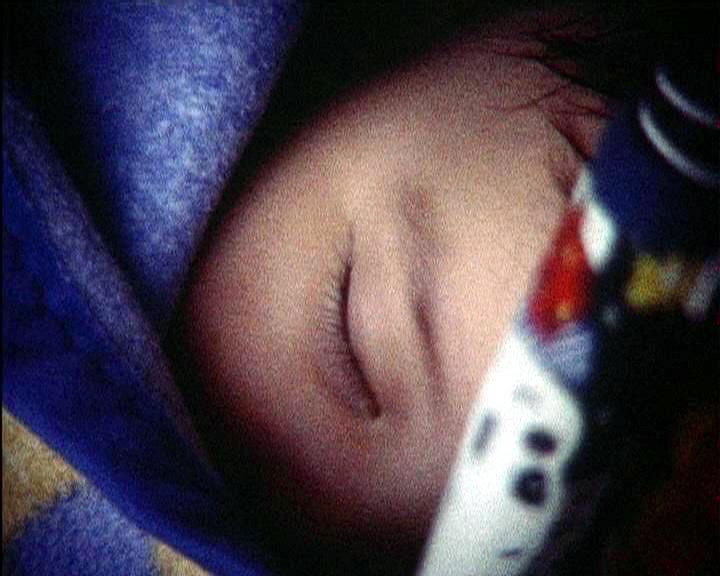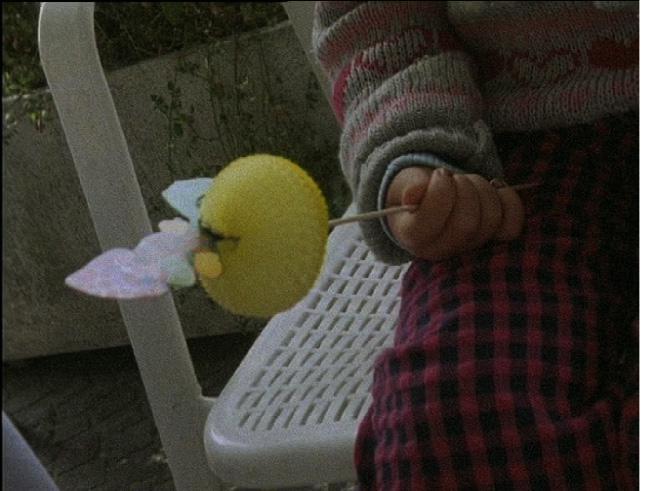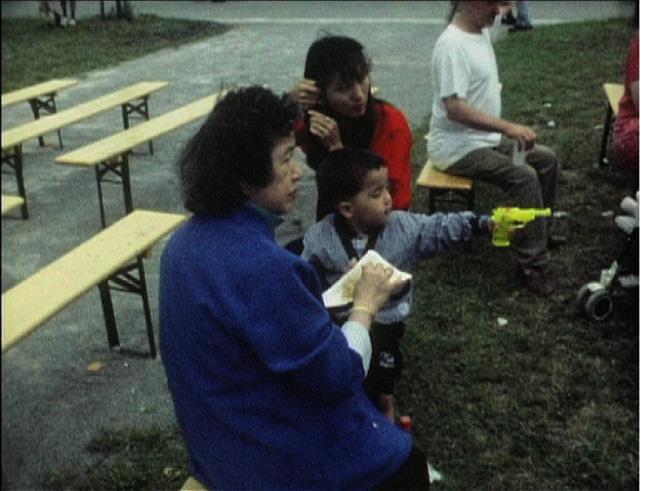At first sight
A small boy, carrying a suitcase and dressed in short pants, trudges down a street which is wet after a rain. "Punta Verde" is visible on a sign across the street, and while the little boy is unable to read it, the inscription is not really necessary for orientation. The viewer just knows: Italy, vacation, family, happiness.
A Prima Vista is an essay about the innocence of the gaze, that "first" look at the world which only small children and great filmmakers are capable of. Without a trace of inhibition and with the curiosity of someone who has no particular plan in mind, who instead deals with what is there to see, hear and taste. Ice cream. Beach sand. More ice cream. A dog running by elicits a joyous response.
Previously unreleased footage that Michael Pilz shot over more than four decades provides the raw material for this film. Italy–Vienna´s Wurstelprater–a farm–a Shinto celebration: These elements are divided, like musical punctuation marks, by self-portraits and portraits of friends. Film is rhythm, intuitive composition. Largo, allegro, then a switch to brief fades in and out which were done in the camera.
The film´s heart: the furious Prater sequence, which was shot in black and white one Sunday early or late in the 1964 season. Young louts wearing ties search for amusement; the bumper cars, the roller-skating rink; fashionable drainpipe trousers with pleats, daring hairdos, remarkable hats. A drunk staggers from a bar. The proprietress assumes her position behind the entrance; the other guests gape while a small girl takes cover next to her parents.
This film of the Prater, said Pilz, was one of the first he ever made. And for twelve minutes A Prima Vista submerges into a long-forgotten era, the "childhood" of a filmmaker in the making. (Michael Omasta)
go to ARTISTS HOMEPAGE .
A prima vista
2008
Austria
91 min



